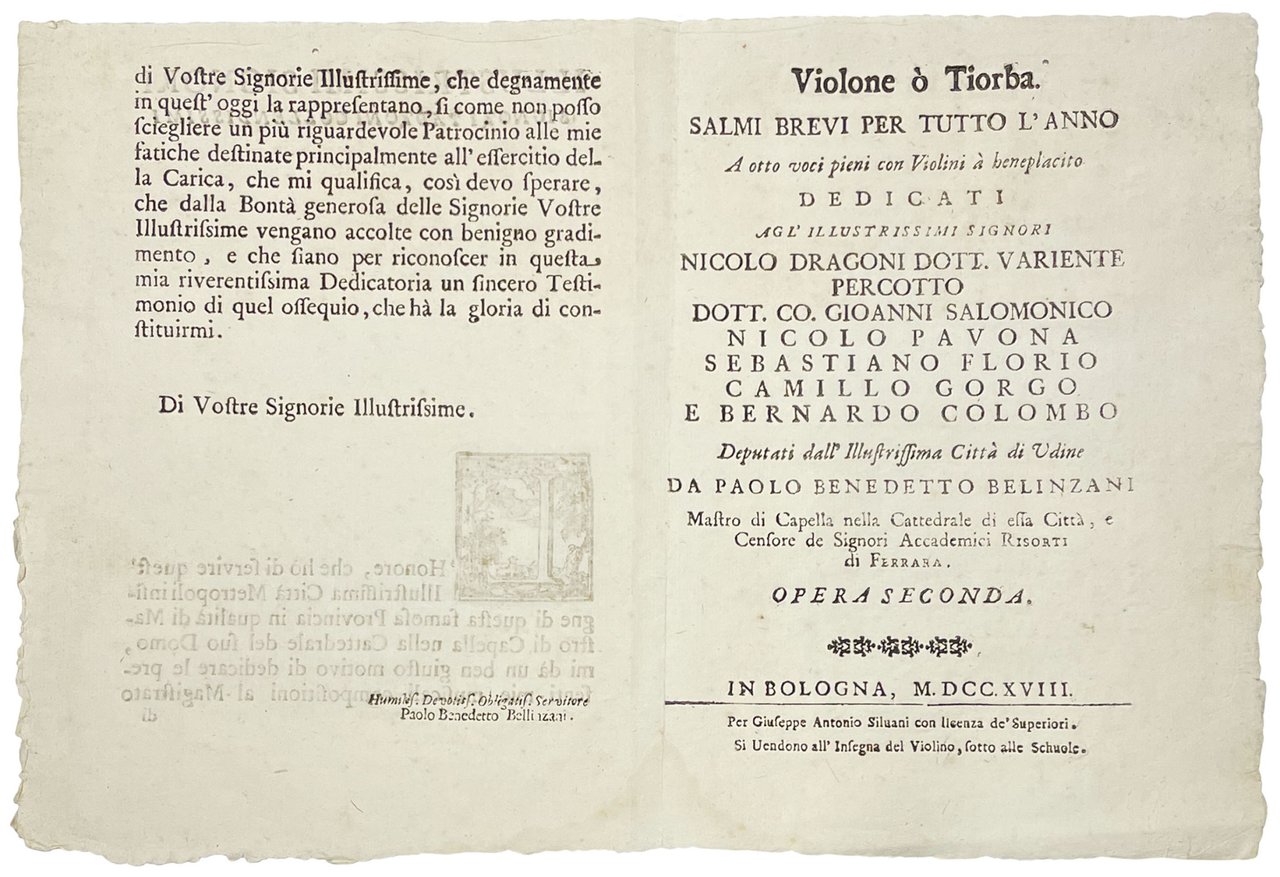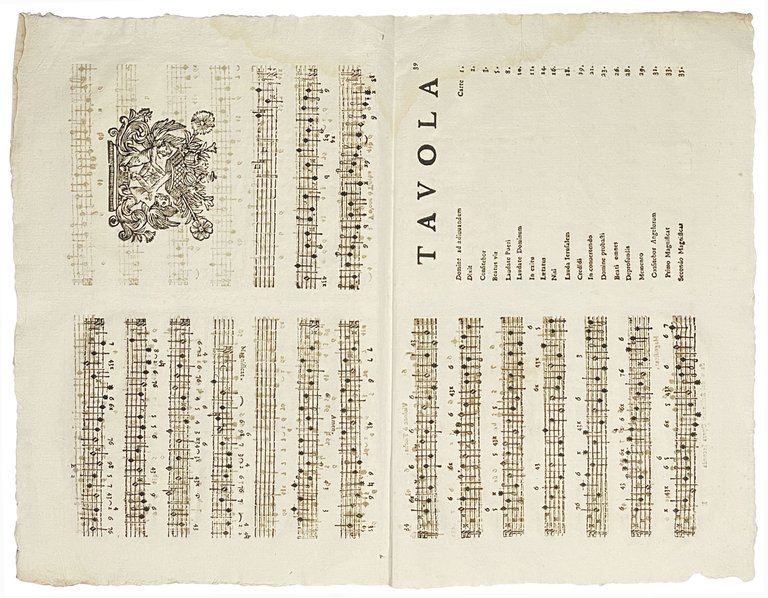

Libri antichi e moderni
BELLINZANI, Paolo Benedetto (1682-1757)
Violone ò Tiorba. Salmi brevi per tutto l'anno a otto voci pieni con violini a beneplacito dedicati agl'Illustrissimi [...] deputati dell'Illustrissima Città di Udine, da Paolo Benedetto Belinzano Mastro di Cappella nella Cattedrale di essa Città e Censore de Signori Accademici Risorti di Ferrara opera seconda
Giuseppe Antonio Silvani (Si vendono all''Insegna del Violino, , 1718
950.00 €
Govi Libreria Antiquaria
(Modena, Italy)
Le corrette spese di spedizione vengono calcolate una volta inserito l’indirizzo di spedizione durante la creazione dell’ordine. A discrezione del Venditore sono disponibili una o più modalità di consegna: Standard, Express, Economy, Ritiro in negozio.
Condizioni di spedizione della Libreria:
Per prodotti con prezzo superiore a 300€ è possibile richiedere un piano rateale a Maremagnum. È possibile effettuare il pagamento con Carta del Docente, 18App, Pubblica Amministrazione.
I tempi di evasione sono stimati in base ai tempi di spedizione della libreria e di consegna da parte del vettore. In caso di fermo doganale, si potrebbero verificare dei ritardi nella consegna. Gli eventuali oneri doganali sono a carico del destinatario.
Clicca per maggiori informazioniMetodi di Pagamento
- PayPal
- Carta di Credito
- Bonifico Bancario
-
-
Scopri come utilizzare
il tuo bonus Carta del Docente -
Scopri come utilizzare
il tuo bonus 18App
Dettagli
Descrizione
First edition. Part for violon only of the 12 of which the work is composed. The work, dedicated to the deputies of the city of Udine, was very well received, as after its publication the city council increased Bellinzani's salary to 60 ducats, and it remained for many years in the repertoire of many chapels, including those of St. Mark in Venice and the Holy House of Loreto.
Paolo Benedetto Bellinzani, probably born in Mantua, lived in Verona until 1715, when he was appointed maestro di cappella of the cathedral of Udine. During his time in Udine, he published his first three printed works: the Missae quatuor vocibus concinendae (op. 1, Bologna, 1717), the present Salmi brevi per tutto l'anno a otto voci (op. 2, Bologna, 1718), in which he also qualified as censor of the Accademici Risorti of Ferrara, and the Sonate a flauto solo con cembalo o violoncello (op. 3, Venice, 1720). In 1718 he resigned his position at the Udine Cathedral and moved first to Ferrara, then to Pergola. Later he was appointed maestro di cappella at the Pesaro Cathedral. In 1727 he was admitted to the Accademia dei Filarmonici of Bologna, in the class of composers. In 1730 he was appointed maestro di cappella of the cathedral of Urbino, where he remained for four years. In 1734 he accepted the same position at the Cathedral of Fano, and the following year he accepted the same, but better paid, position at the Cathedral of Orvieto. Finally, in 1737, he settled in Recanati, where for thirty years he held the position of first cantor and served as chapel master of the cathedral. It was in this city that he died on February 25, 1757. He was the author of sacred and secular music, vocal and instrumental, as well as a short treatise on theoretical music (R. Meloncelli, Bellinzani, Paolo Benedetto, in: “Dizionario biografico degli italiani”, Rome, 1970, vol. 7, s.v.).
RISM, B-1781; Italian Union Catalogue, IT\ICCU\MUS\0272451.

